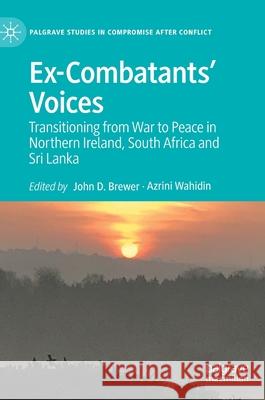Ex-Combatants' Voices: Transitioning from War to Peace in Northern Ireland, South Africa and Sri Lanka » książka
topmenu
Ex-Combatants' Voices: Transitioning from War to Peace in Northern Ireland, South Africa and Sri Lanka
ISBN-13: 9783030615659 / Angielski / Twarda / 2021 / 348 str.
Ex-Combatants' Voices: Transitioning from War to Peace in Northern Ireland, South Africa and Sri Lanka
ISBN-13: 9783030615659 / Angielski / Twarda / 2021 / 348 str.
cena 523,30
(netto: 498,38 VAT: 5%)
Najniższa cena z 30 dni: 501,19
(netto: 498,38 VAT: 5%)
Najniższa cena z 30 dni: 501,19
Termin realizacji zamówienia:
ok. 22 dni roboczych
Dostawa w 2026 r.
ok. 22 dni roboczych
Dostawa w 2026 r.
Darmowa dostawa!
Kategorie:
Kategorie BISAC:
Wydawca:
Palgrave MacMillan
Seria wydawnicza:
Język:
Angielski
ISBN-13:
9783030615659
Rok wydania:
2021
Wydanie:
2021
Numer serii:
000459501
Ilość stron:
348
Waga:
0.59 kg
Wymiary:
21.01 x 14.81 x 2.24
Oprawa:
Twarda
Wolumenów:
01
Dodatkowe informacje:
Wydanie ilustrowane











